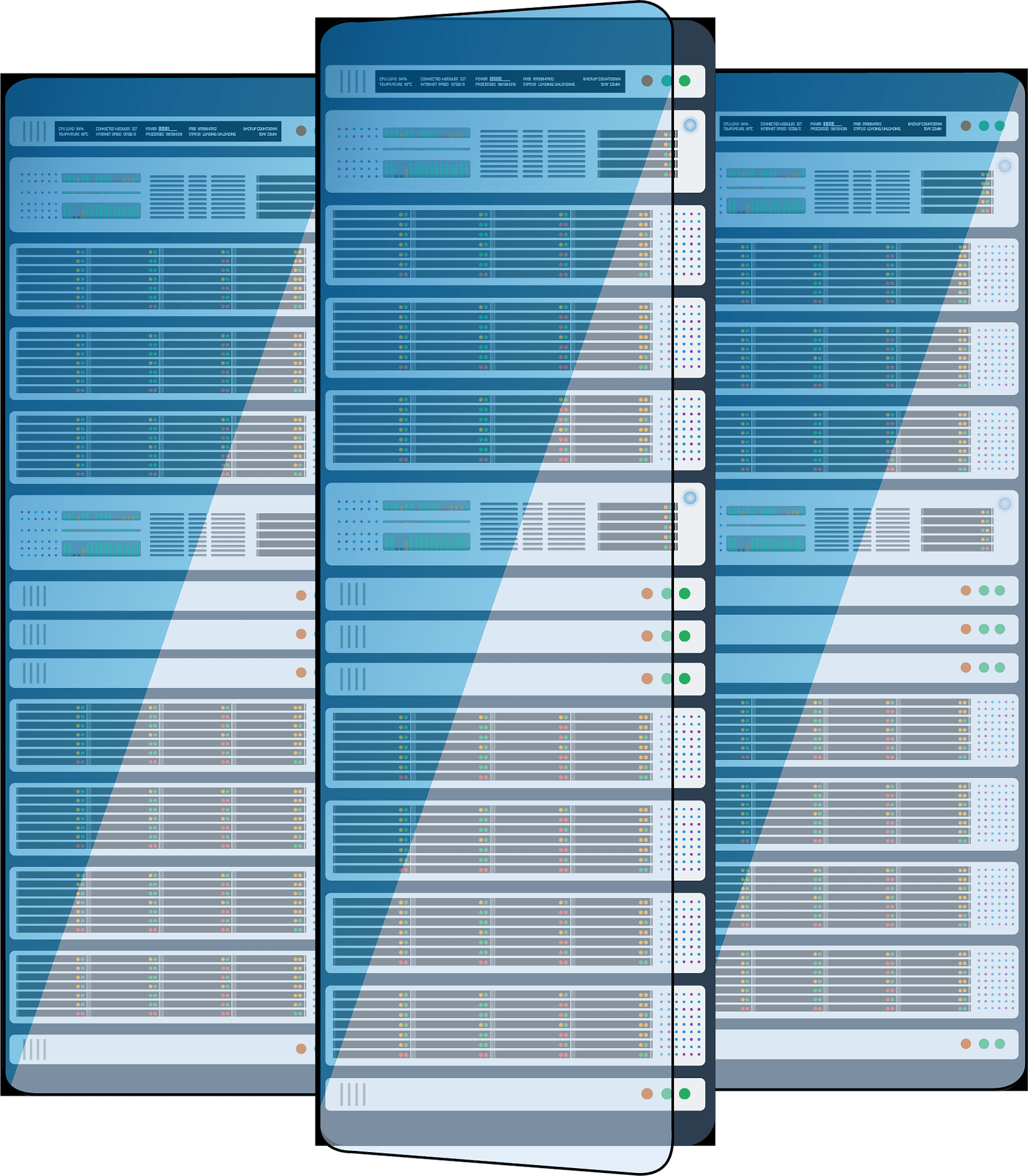Dedicated servers are what people used to refer to as “those things in our stockroom with the fan blowing on them constantly…ask Bill, he’s knows what they do.”
Now, with the advent of the cloud environment, there are massive unmarked server farms that look like clandestine alien testing labs, which are actually high-tech, climate-controlled versions of a stockroom full of Bills.
As data and traffic is bandied about from one server farm to the next by larger cloud providers for redundancy and capacity reasons, some small and medium business have voiced concerns over inequity in cost and how they are deprioritized by server protocols.
However, after over a decade of cloud computing, dedicated servers are still proving their worth. Some companies are discovering that:
- Data needs protecting and storing in a better environment, but you don’t need your own in-house resources to maintain or service the hardware.
- Depending on the business’ size, needs, and traffic, the cost can be lower than a cloud server solution but higher than shared hosting.
- Since dedicated servers could experience scheduled downtime, a blended cloud solution should be considered.
- High availability is linked to sales and productivity, but the difference between dedicated server vs. cloud server uptime is negligible.
- The dedicated server service is more personal and understandable. Plus, the team is generally smaller, likely consisting of only a couple of “Bills.”
Is there room for both dedicated and cloud?
First, let’s talk about what a dedicated server is not. Shared hosting, for example, stores your site on a server with dozens (perhaps hundreds) of other sites, with whom you also share the traffic load. A cloud hosting plan is scalable, spreading data assets across several servers, which creates a nice fault tolerant environment for content producers who might have a sudden surge in traffic.
The difference between a cloud hosting plan and a dedicated server is that dedicated server plans include a fixed allocation of isolated RAM, CPU, & SSD/HDD storage. This improves security, boosts performance and is great for businesses with consistent traffic and a team in need of access to vital info (a CMS, an intranet, etc.). A cloud hosting plan may display some latency issues and allows data to skip from server to server, each of which has varying ages, reliability, and security issues.
Why should you want a dedicated server?
Cost, performance, and peace of mind.
A dedicated server complements a cloud service, providing a platform with options for control, data backup and mechanisms in case of a sudden surge in traffic. Moreover, it is a great way to manage costs, so expenditures track to your growth and storage needs.
A shared hosting environment can put your data at risk because of the online behaviors of another user you’ve never met. Even though your habits are good doesn’t mean that others on the server aren’t degrading the security with every click of the mouse. Servers have a finite lifespan and the performance of a dedicated server is reliable and predictable as long as it is well-secured and properly maintained by trained professionals like the people on the M5 team.
What does Dedicated Server Hosting look like?
The hallmark of the M5 Dedicated Servers are customized solutions and experienced attentive help when you need it. When your needs require it, we balance your cloud services with dedicated hardware systems.
Some possible requirements may include:
- Advanced dedicated servers
- Advanced custom configurations
- High-speed local storage arrays
- Encrypted physical disks
- Eventual certified destruction required
- Non-variable I/O performance
- Software that requires a hardware key or “dongle”
- External hardware such as CDMA antennae, POTS lines or modem
- Legacy OS support
How Does a Dedicated Server Change My Current Experience?
Being a customized experience, the answer to that question up to you.
The M5 team works closely with stakeholders to ensure the user experience between the dedicated server and the cloud server are seamless. A change like this offers the chance to rethink and reconfigure data taxonomy and file nomenclature to enhance workflows and improve search.
This also offers an opportunity to improve security. M5 offers a suite of security packages geared toward protecting the data housed on the server.
Conclusion
The highspeed line to your building is probably fast and secure, but likely not as equipped as M5’s facility for high traffic, data transfer capacity and environmentally controlled server hosting and security.
With a dedicated server and customized solutions, you can choose to keep things the same or customize them to your needs. This frees up your IT specialist for network concerns that can affect production rather than time-consuming hardware maintenance.
Contact M5 to host your dedicated server. We want to be your Bill.



